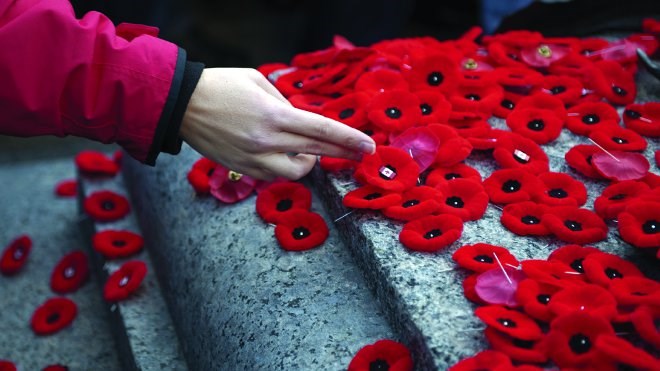Having been born in a country liberated by Canadian and Polish soldiers, my love and respect for veterans has always been an essential part of me.
I was very young, so I remember little of the war waged in the area where I lived. However, during my youth, I heard many stories.
There was also physical evidence everywhere, such as the steeple of the beautiful basilica in Hulst, my hometown, having been destroyed. This was the church we attended every Sunday and is located in the centre of Hulst, The Netherlands. Our town needed to be liberated as quickly as possible so that the Allies could gain full control of the important port of Antwerp, Belgium.
We lived just 20 minutes by car from Antwerp.
Well-known is the large park-like Canadian soldiers’ cemetery in Bergen op Zoom, a short drive from my hometown. I actually discovered the grave there of my Lively friend’s father, Clifford Donahue. That was an uncanny discovery! I knew he was buried in the Netherlands, but had no idea where.
Canadian veterans of all wars deserve our respect and gratitude.
Wearing a poppy is just one way of showing that and even though it might seem insignificant, the meaning of the poppy is a visual reminder of the deceased soldiers who fought for our freedom.
It is also a symbol of Canada’s devotion to peace and goodwill. The poem, “In Flanders Fields,” composed in 1915, should be memorized by all school children and the meaning explained.
The region of Flanders is composed of both the south of Holland and the north of Belgium. I know that region very well. Red poppies grow everywhere in the fields, ditches and beside the roadways, so it is no wonder that Canadian Lt. Colonel John McCrea, poet and physician, saw them as the blood shed by the young dying Canadian soldiers around him in the First World War.
Many soldiers could not talk about the horrors they had witnessed on the battlefields. It’s easy to understand their reasons. They wanted to try to lead normal lives with their families. For some, this was very difficult and they suffered frightening nightmares for many years.
Remembrance Day on Nov. 11 is so much more than a day off (for those who happen to get it off). It’s a reminder that, “all gave some … some gave all.”
REMEMBER
It is the soldier, not the reporter,
Who has given us freedom of the press.
It is the soldier, not the campus organizer,
Who has given us the freedom to demonstrate.
It is the soldier who salutes our flag,
Who serves beneath that flag, whose coffin is draped by the flag,
Who allows the protester to burn the flag.
-Father Dennis Edward O'Brien, Sergeant, USMarineCorps
In 1919, Canadian poet Edna Jaques wrote a poem replying to the lament in Col. McCrea’s poem. I was totally unaware of this until I ran across it very recently in a magazine.
In Flanders Now
We have kept faith, ye Flanders’ dead,
Sleep well beneath those poppies red,
That mark your place.
The torch your dying hands did throw,
We’ve held it high before the foe,
And answered bitter blow for blow,
In Flanders’ fields.
And where your heroes’ blood was spilled,
The guns are now forever stilled,
And silent grown.
There is no moaning of the slain,
There is no cry of tortured pain,
And blood will never flow again
In Flanders’ fields.
Erna de Burger-Fex is a writer and retired teacher.
Join Sudbury.com+
- Messages
- Post a Listing
- Your Listings
- Your Profile
- Your Subscriptions
- Your Likes
- Your Business
- Support Local News
- Payment History
Sudbury.com+ members
Already a +member?
Not a +member?
Sign up for a Sudbury.com+ account for instant access to upcoming contests, local offers, auctions and so much more.
